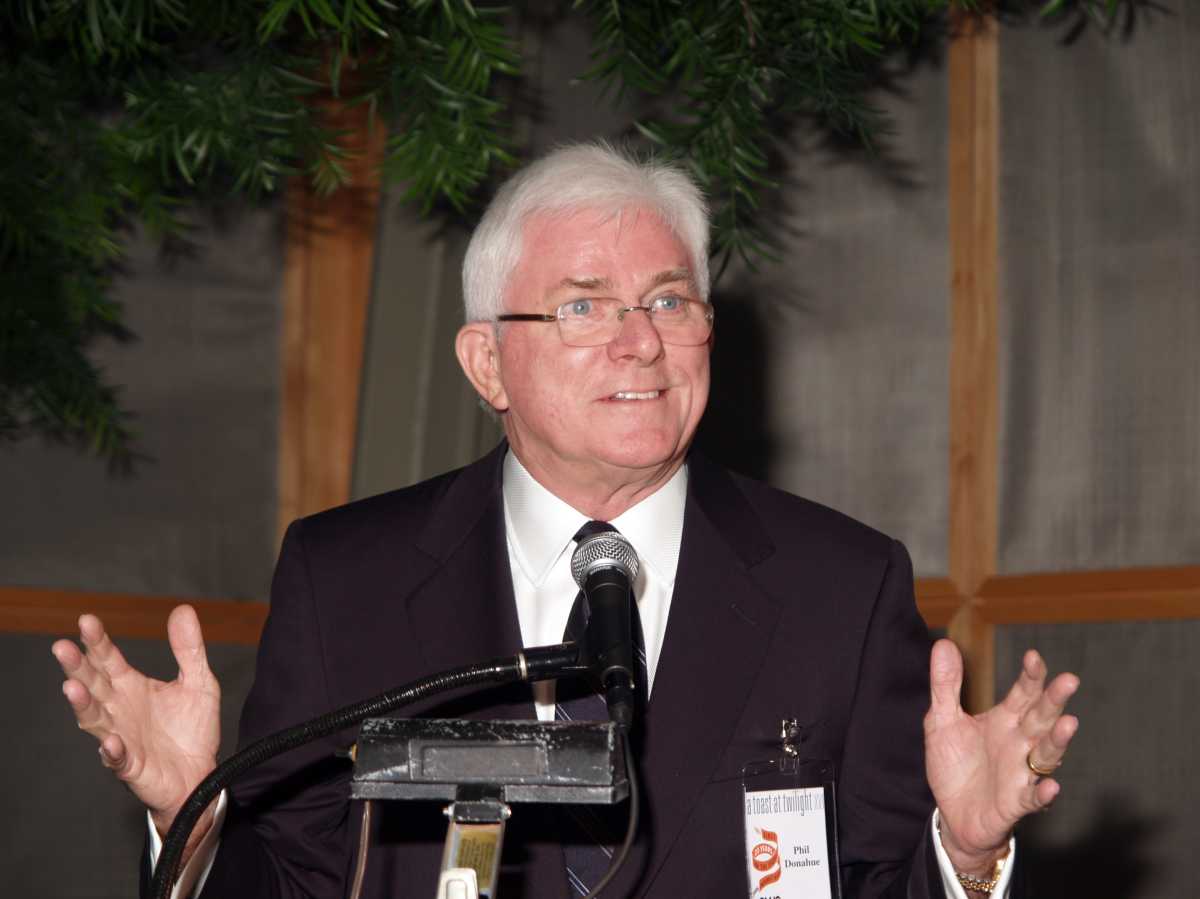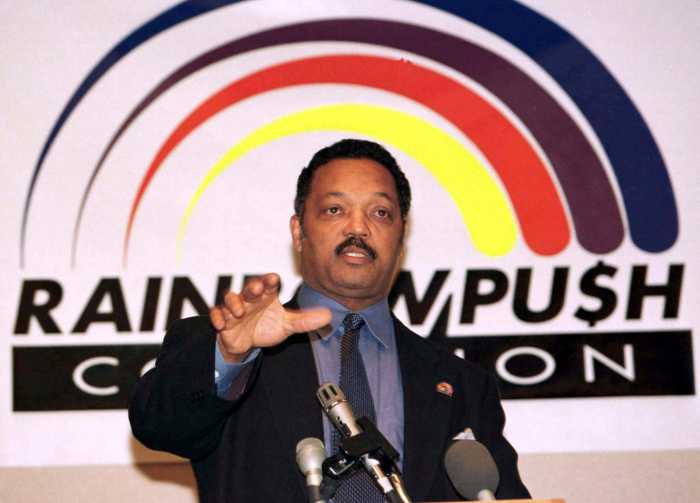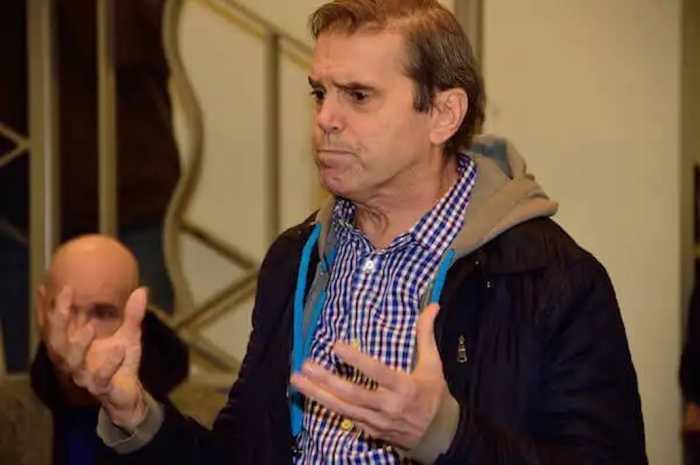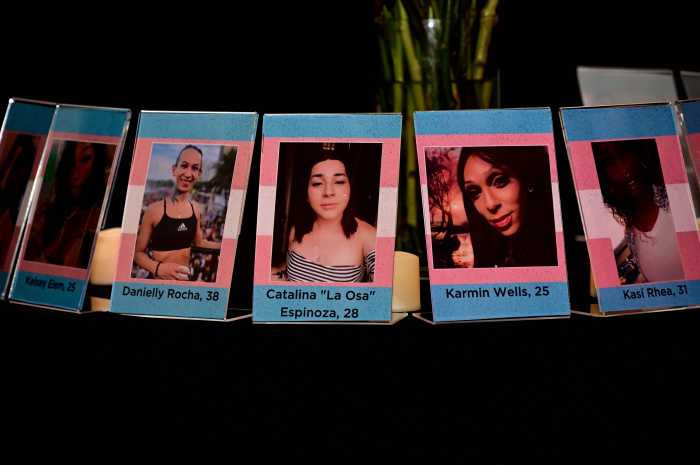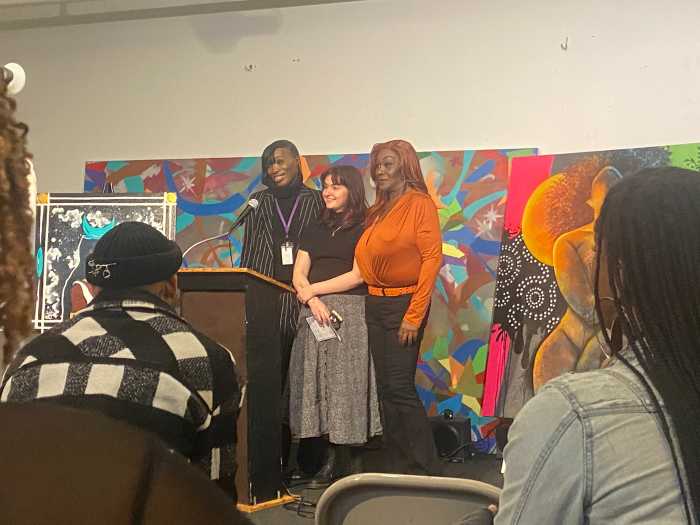“We’re all here to learn,” Phil Donahue often said on his eponymous and groundbreaking daytime TV talk show as he guided his studio audiences and the millions watching at home on a broad range of timely issues including some of the first national shows on gay rights, LGBTQ families, bisexuality, a gay high school, gay kids going to the prom, and same-sex marriage. He also devoted a show in 1982 to the emerging AIDS crisis (with Larry Kramer, Dr. Dan William, and Philip Lanzaratta, a person with AIDS) at a time when the cause of the syndrome was not yet known and the mainstream media — from the New York Times to the network news shows — were refusing to cover it.
Donahue died August 18 at his home in New York at 88 of an undisclosed cause. When he was awarded the Presidential Medal of Freedom from President Joe Biden earlier this year he accepted it in a wheelchair looking frail. But Donahue was anything but in the conduct of his talk show as he fearlessly took on some of the most controversial issues of the day. He wanted his topics to be “hot,” but did not turn them into the kind of circuses that some of his much less scrupulous talk show successors had, from Geraldo Rivera to Jerry Springer to Morton Downey, Jr. Donahue did pioneering work in bringing his audiences — and live callers — into the conversations.
He first had a gay man as his guest on his show in 1968 — before Stonewall — but LGBTQ people were frequent guests over the decades. Having gay people on, he said, taught him about homophobia. He told Oprah Winfrey in 2002, “There’s a reason for the closet. As the years went by after that show, I got involved in gay politics. And through my activism, I began to realize what it must be like to be born, to live, and to die in the closet. I can’t even imagine it.”
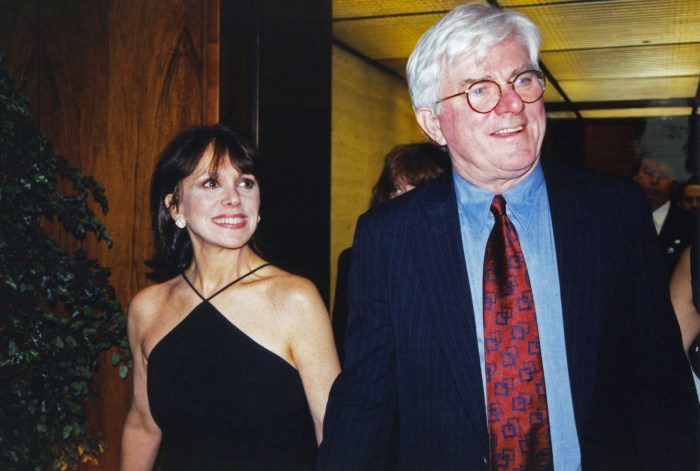
In 1974, Donahue had Stonewall participant Mark Segal (now the publisher of the Philadelphia Gay News) on with his then-partner and Mark’s parents. In 1980, he had on two gay teens from Cumberland, Rhode Island — Aaron Fricke and Paul Guilbert — who had successfully sued their high school for the right to attend prom together. He did a show on gay marriage in 1991, long before it became a hot national issue.
He did many shows on the AIDS plague, including one in 1990 on ACT UP featuring Kramer, Mark Harrington, Ann Northrop, Peter Staley, and Robert Garcia in the wake of their Stop the Church action protesting Cardinal John O’Connor inside and outside St. Patrick’s Cathedral over his opposition to safe-sex education and homosexuality. One woman in the audience said that she would support them if they had just picketed outside, to which Staley said, “If we had stayed outside you would never have heard of us.”
Donahue went on to become a board member of GMHC. Activist Jay W Walker, who was a special events manager for GMHC in 2002, wrote, “Phil was one of the most committed board members of GMHC during my time there. He wasn’t a dilettante lending his name. He cared deeply about GMHC’s mission and people living with HIV/AIDS.”
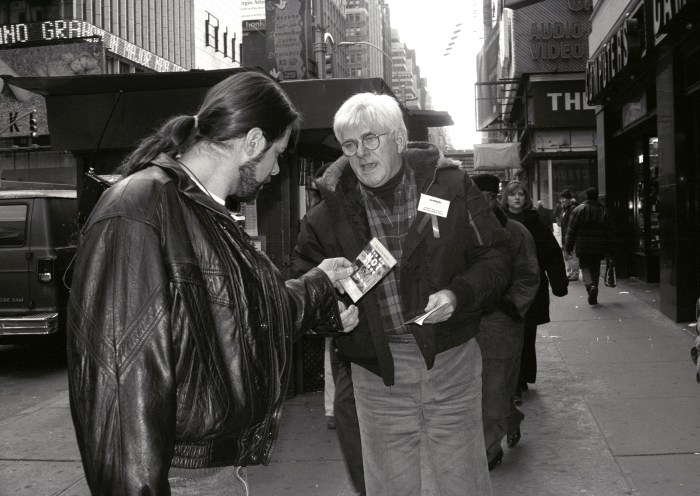
Donahue was born in Cleveland in 1935 and his first talk show was out of Dayton in 1967 before moving to Chicago in 1974 and New York in 1984. The Phil Donahue Show was in syndication until 1996.
While raised Catholic, he would take on his church when doing shows on gay topics — often making reference to “the Church’s sin of homophobia.”
In 2016, Donahue led a march of LGBTQ Catholic “pilgrims” through Central Park pushing for a more LGBTQ inclusive church. It included representatives of the LGBTQ group from his alma mater, Notre Dame. He told Gay City News at the time, “The real lesson for me [from having gay guests] that I got much too late was that I began to see how brave these [gay] people were. They challenged me to see what I was so anxious about.” He said he was warned that people would think he was gay because he was sympathetic and “there was no hope for my career.” He was an admirer of the incremental progress Pope Francis was bringing to the church and called on “our own schools and our alumni to get on board here. Anti-gay feelings can be lethal… We are too late in welcoming all of you.”
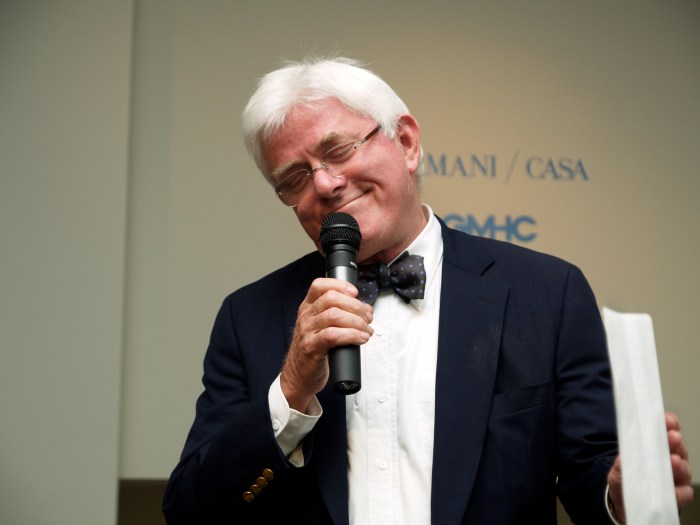
Donahue was nominated for 20 Daytime Emmy Awards and won nine times for Outstanding Talk Show Host. He also won the prestigious Peabody Award in 1980. GLAAD made Donahue their honoree at their very first Media Awards dinner in 1990.
When Donahue was grand marshal at the LGBTQ-inclusive St. Pat’s for All Parade in Queens in 2017, he joined in a chorus afterwards of “When Irish Eyes are Smiling” with Malachy McCourt and gay activists Brendan Fay and Edie Windsor in a bar.
Harvey Fierstein wrote on Facebook, “What an incredible man. He gave voice to everyday people. What we did with our voices was our own fault, but he turned the mic on and put it up to our mouths and let us have our say on TV.”
New Jersey gay activist Steven Goldstein, himself a former TV producer, wrote that he “admired Phil Donahue for being one of the most important civil rights champions in American history.”
After his talk show ended in 1996, he hosted a “Donahue” interview show on MSNBC from 2002. It became the highest-rated program on the network, but NBC’s owner at the time, General Electric, a big defense contractor, objected to Donahue’s stance against the Iraq War and tried to require him to have two conservative guests for every “liberal” on the show at a time most news outlets were cheerleading for George W. Bush’s illegal invasion of Iraq that upended the Middle East and led to 20 years of conflict that killed more than 600,000 people.
Within a year, NBC canceled him. But despite his absence from TV for more than 20 years, Donahue’s legacy lives on in the many hearts and minds he opened with his candid, penetrating, and civil conversations in his 7,000 shows.
His three most frequent guests were consumer advocate Ralph Nader, feminist icon Gloria Steinem, and civil rights leader Jesse Jackson. Donahue was the first in the US to interview Nelson Mandela after his release in 1990 after 27 years in prison for protesting apartheid.
Donahue is survived by his second wife, actor and feminist activist Marlo Thomas, who he met when she was a guest on his show in 1977. (Donahue was also an ardent feminist.) At the end of that show, Donahue grasped her hand and said, “You are fascinating.” Then Thomas grasped his hand and said, “You are wonderful. You are loving and generous and you like women and it’s a pleasure. And whoever is the woman in your life is very lucky!” They married in 1980. At his death she posted, “I lost my sweetheart.”
He is also survived by four of his five children.

